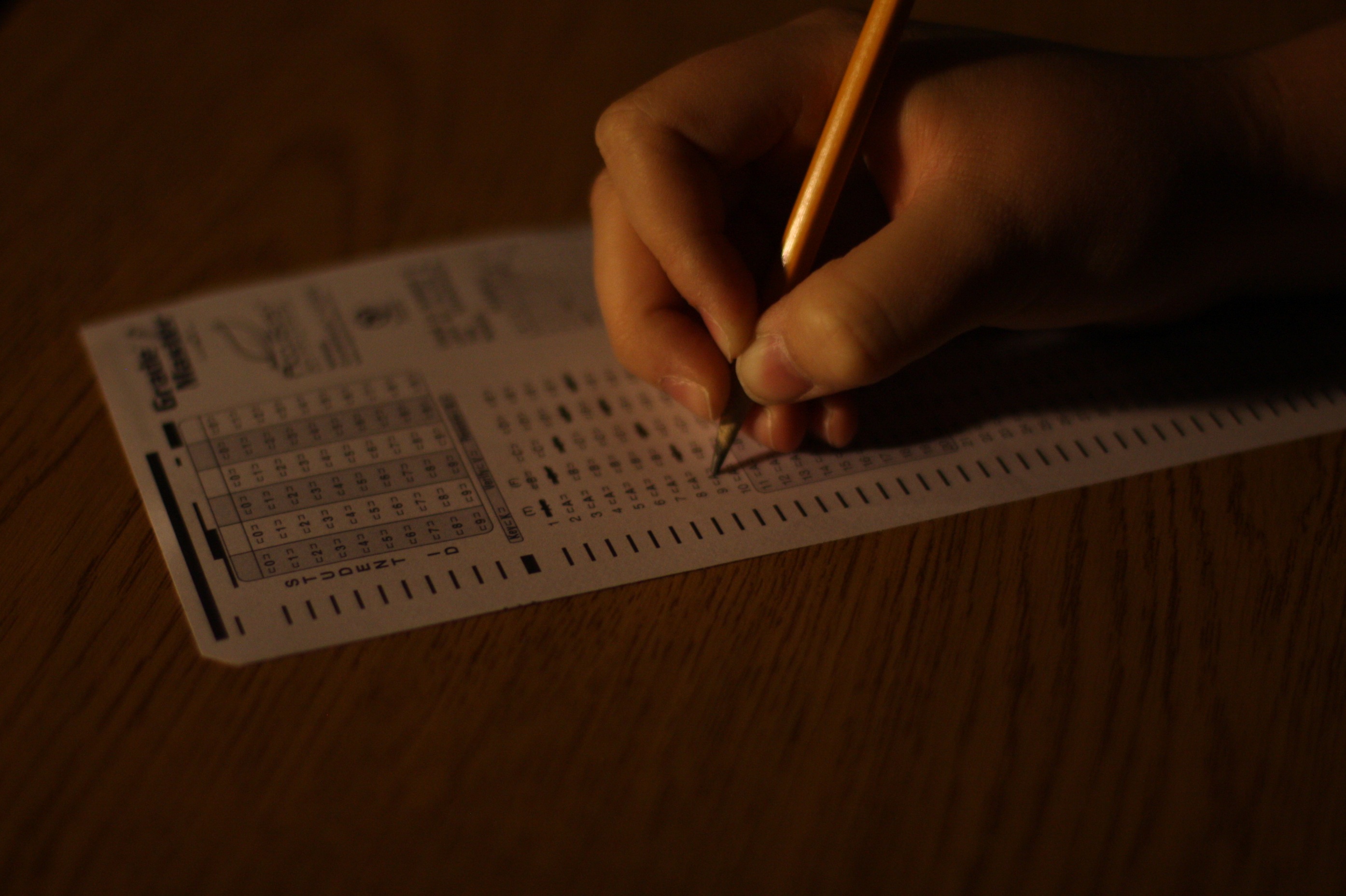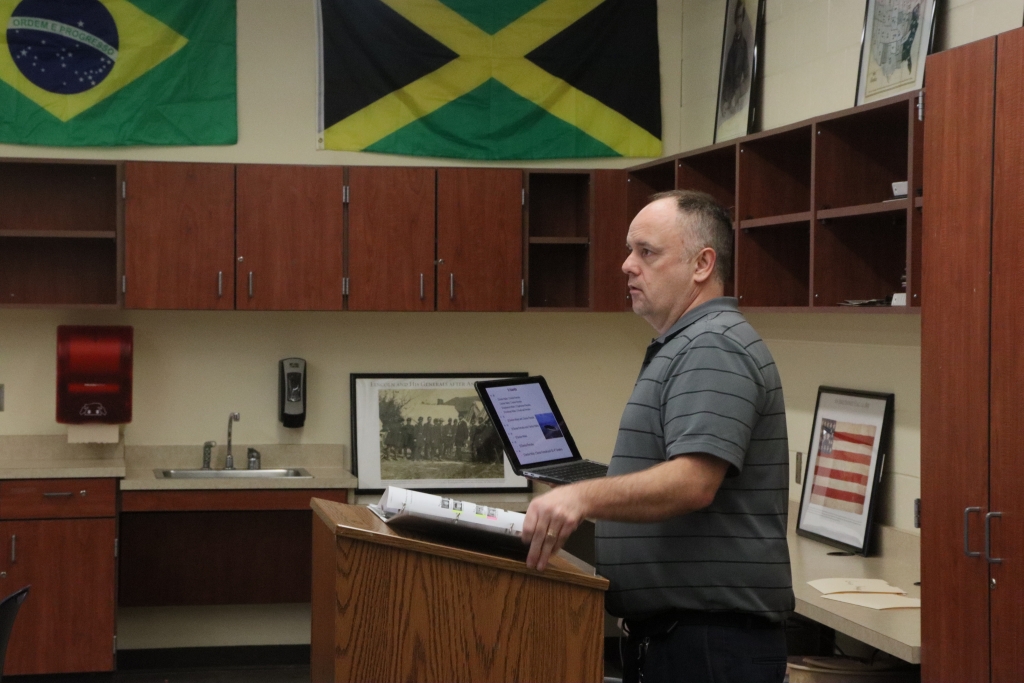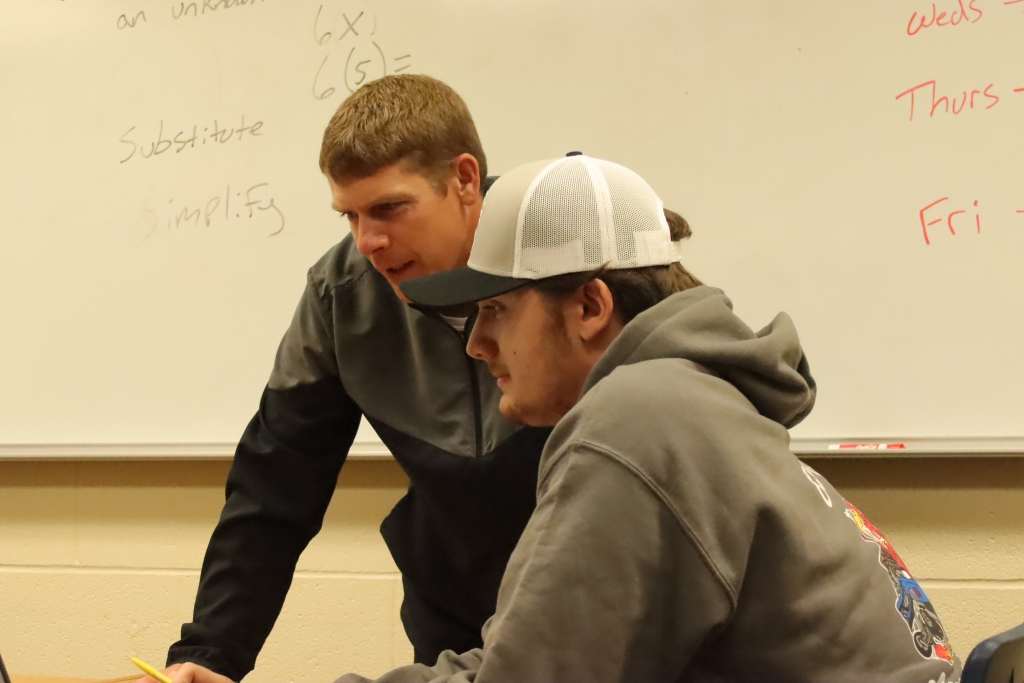More Than A Number

by Kennedy O’Dell
36, the mythic number of perfection. Such a composite would blow the socks off any college admissions representative and secure it’s scorer a place at any college in the country. Seniors and juniors begrudgingly turn up at test dates throughout the year secretly hoping to score within range of perfection but few make it. The pressure to succeed surrounds upperclassmen on all fronts. Can you qualify for admission to your college of choice with your score? Do you need a few more points for that scholarship? Are your parents satisfied? Are you? Standardized testing is equal parts vital and terrifying but it isn’t something that most high school graduates can avoid. The one thing students can take comfort in is that they aren’t doing it alone.
When it comes to the big tests, each high schooler has their own philosophy. Let’s take the PSAT as a sample. Some students show up the day of with no prep and a positive attitude. These testers aren’t afraid of failure and are often taking it as a practice test. Others come to the testing center having spent countless hours pouring over sample questions and vocab lists. These students are interested in qualifying for National Merit scholarships attached to the test and sometimes feel as if their whole future is tied to the outcome of one day. It’s quite the spectrum. Junior Sidney Johnson recently faced the pressure head on when she sat down to take the PSAT. When asked about preparation, Johnson mentally shrugged.
“I was supposed to prepare?”
Johnson did, however, have a method of blowing off steam before and after the test. “I’ve found that curling into the fetal position and weeping generally helps relieve the stress.”
Stress is an issue that persists through all standardized testing, but especially the ACT. In Eudora, the ACT is normally the only college qualifying test that a senior will take. Students occasionally take COMPASS tests or the SAT but these are relatively uncommon. Since the test means so much, many students will take it multiple times hoping for improvement. Senior Rebekah Case has taken the test three times to earn a 34. Experience was the key for Case who was able to add five points to her first composite.
“I didn’t spend much time studying specifically for the tests, but I put a lot of effort into all of my school work, which helped me prepare. The first time through was the hardest because, although I had taken the Explore and Plan tests, I still didn’t know exactly what the format would be or how it would feel. Taking it a second time improved my score simply because I was more prepared for the layout and structure of the test.” Case commented. She also cited higher level math classes as a major test advantage.
Veterans like Case seem to have the rigorous testing routine down but what about the rookies? Everyone will take the test once as a newbie and from that perspective things often look a bit rougher. The style of the ACT is new and intimidating, how do you overcome it? First time ACT-taker Alyssa Blaisdell approaches that question with a relaxed attitude. Blaisdell chooses to face the fear of failure head on by frequently reminding herself that she will be happy with whatever score she gets. Alyssa took her test on
October 26 byt hadn’t prepared for her test when interviewed.
“I’m just going to ‘wing it’,” said Blaisdell.
ACT, SAT, PSAT/NMSQT, standardized testing is a maze of acronyms. Somewhere between reading and math questions these scores attempt to measure your knowledge. While colleges see these as a great way to evaluate students, they must realize that scores alone determine very little. Tests don’t ask you questions about your moral character or ask you about how involved you are in your community. These tests don’t ask what you love to do and how you have spent your time. Answers to these questions have to matter. In admissions, and in life, quantitative evaluations of knowledge should always be paired with qualitative evaluations of character. Work hard and test the best you can, but always remember that you are far more than a number.







